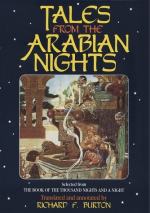10. This prepares us for the second query, which you proposed, that is as to the numbers who joined in the Exodus.
The Masoretic text, from which the English version of the Hebrew records is made, gives the result of the census at Sinai (=Horeb) as being 603,550 men, “twenty years old and upwards, that were able to go forth to war in Israel"-the tribe of Levi not included. On this basis it has been generally stated, that the number of the Bene Israel at the Exodus was three millions. Of late I find that two millions is the accepted number. The absurdity of even this aggregate is manifest. How could such a vast multitude be subsisted? How kept in order? How compelled to observe sanitary regulations? Moreover, in the then enfeebled state of Egypt, why should 603,550 armed men not have marched out without ceremony? Why ask permission to go to celebrate a sacrifice to their God?
But there is another series of objections to these two millions, which I have never seen stated or even hinted, to which I pray your attention.
The area of Palestine differs little from that of the three American States, Massachusetts, Rhode Island and Connecticut, the most densely peopled of the Union, containing by the last census a population of somewhat less than two and a half millions.
By the second Hebrew census (Numb. xxvi.) taken just before the death of Moses, the army was 601,730; from which the inference has always been drawn, that at least 2,000,000, in the aggregate, Levites 23,000 males still excepted, entered and possessed the conquered territories.
Take now one of the late maps of Palestine and mark upon it the boundaries of the tribes as given in the book of Joshua. This second census gives the number of each tribal army to be inserted in each tribal territory. Reuben, 43,750; Judah, 76,500; Benjamin, 45,600, etc., etc. By Josh. xii. the land was then divided between some 40 petty kings and peoples, 31 of whom are named as having been subjected. If, now, Joshua’s army numbered over 600,000, why was not the conquest made complete? Massachusetts, Rhode Island and Connecticut are divided into 27 counties. Suppose, now, that these counties were each a separate and independent little kingdom dependent upon itself for defence, what resistance could be made to an army of 600,000 men, all of them grown up during forty years of life in a camp, and in the full vigour of




